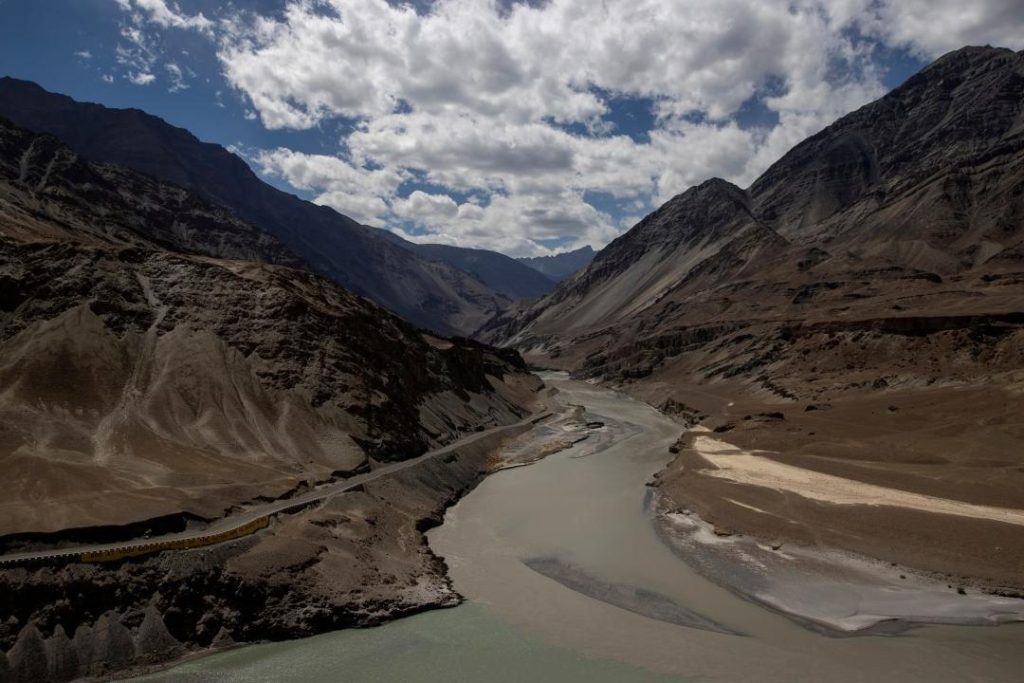
What Reasons Has India Cited in Letter to Pakistan While Suspending Indus Waters Treaty?
The Indus Waters Treaty, signed in 1960, has been a cornerstone of water diplomacy between India and Pakistan. The treaty aimed to resolve disputes over the sharing of the waters of the Indus River and its tributaries. However, in recent years, tensions have been escalating between the two nations, and on September 20, 2021, India formally informed Pakistan of its decision to suspend the treaty. The letter cited several reasons for this decision, which has sent shockwaves across the globe.
India’s decision to suspend the treaty comes amid heightened tensions between the two countries, particularly in the wake of the August 5, 2021, abrogation of Article 370, which granted special status to Jammu and Kashmir. The move has been seen as a significant shift in India’s approach towards its relationship with Pakistan.
In its letter to Pakistan, India cited “sustained cross-border terrorism by Pakistan” as one of the reasons for suspending the treaty. According to a report by ANI, India stated that the resulting security uncertainties have directly impeded its full utilization of its rights under the treaty. Pakistan has been accused of providing shelter and support to various terrorist organizations operating in the region, including Lashkar-e-Taiba and Jaish-e-Mohammed.
India also accused Pakistan of refusing to engage in meaningful negotiations to resolve outstanding issues related to the treaty. The letter noted that Pakistan has been unwilling to enter into talks on issues such as the construction of dams and hydroelectric projects on the Indus River and its tributaries. This lack of cooperation has made it challenging for India to utilize its rights under the treaty, further exacerbating the tensions between the two countries.
Another reason cited by India for suspending the treaty is the altered demographics in the region. The abrogation of Article 370 has led to a significant change in the population dynamics of Jammu and Kashmir, which has implications for the Indus Waters Treaty. The treaty was signed at a time when the population of Jammu and Kashmir was predominantly Muslim, and the treaty was designed to ensure that the region’s water resources were shared fairly between India and Pakistan.
However, the altered demographics have raised concerns about the potential misuse of the treaty’s provisions. With the majority of the population in Jammu and Kashmir now being Hindu, there are fears that the region’s water resources could be diverted to meet the needs of India’s growing population, rather than being shared fairly with Pakistan.
The suspension of the Indus Waters Treaty is a significant development in the ongoing tensions between India and Pakistan. The treaty has been in place for over 60 years, and its suspension has raised concerns about the potential impact on the region’s water resources and the environment.
The Indus Waters Treaty was signed in 1960, with the aim of resolving disputes over the sharing of the waters of the Indus River and its tributaries. The treaty was designed to ensure that the region’s water resources were shared fairly between India and Pakistan, and it has played a crucial role in maintaining peace and stability in the region.
However, in recent years, tensions have been escalating between the two countries, particularly over issues such as cross-border terrorism and the disputed territory of Jammu and Kashmir. The suspension of the treaty is a reflection of these tensions, and it has raised concerns about the potential impact on the region’s water resources and the environment.
In conclusion, India’s decision to suspend the Indus Waters Treaty is a significant development in the ongoing tensions between India and Pakistan. The treaty has been in place for over 60 years, and its suspension has raised concerns about the potential impact on the region’s water resources and the environment.
The reasons cited by India for suspending the treaty, including sustained cross-border terrorism and altered demographics, are likely to have significant implications for the region. The suspension of the treaty is a reflection of the tense relations between India and Pakistan, and it highlights the need for meaningful dialogue and cooperation to resolve outstanding issues.
As the situation continues to unfold, it is essential to remain vigilant and to monitor the developments closely. The suspension of the Indus Waters Treaty is a significant event, and its implications will be far-reaching. It is crucial that both India and Pakistan work together to resolve their differences and to find a lasting solution to the region’s water resources.






